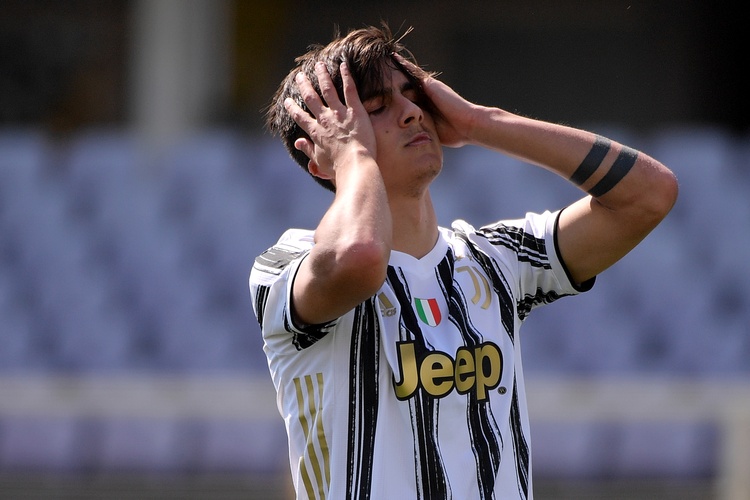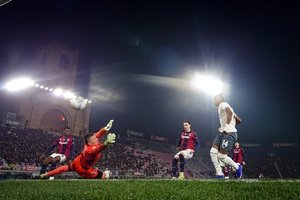Under the new rule, which was unanimously approved, any team participating in a privately run competition would be banned from playing in domestic leagues.
The clause also applies to friendly games and tournaments.
It comes after Serie A leader Inter, Juventus and AC Milan joined forces with nine other elite European clubs to form the ill-fated Super League.
The controversial breakaway league imploded last week – just days after it was announced – when all six English clubs backed away from the proposal, following a backlash from fans and authorities, and they were swiftly joined by Inter and Spanish club Atlético Madrid.
Juventus and Milan admitted the project could not go ahead following the backing out of most clubs, while leaving open the possibility of joining a Super League at a later date.
“Those who feel they have to participate in competitions not authorised by the FIGC, FIFA or UEFA lose their affiliation,” FIGC president Gabriele Gravina said.
“If, by the deadline for applications to the national championships on June 21, someone joins up to other private leagues, they will not take part in our championship.”
Juventus would appear to be the club at most serious risk, although Real Madrid president Florentino Perez has claimed Milan are also still involved.
Gravina, who said last week the clubs would not be punished for their involvement in the plan, again stressed his belief that the failed Super League project should serve as a wake-up call that change is needed.
The federation is working on reforms, which it acknowledged need to be introduced soon.
Gravina said these will likely include playoffs for relegation and promotion, as well as a reduction in the number of teams in Serie A.
“Those who interpreted the Super League as an act of weakness from several clubs who are experiencing a moment of difficulty economically, or an insurrection in the soccer system are mistaken,” Gravina said.
“It’s a delicate matter that needs to be further explored.”












